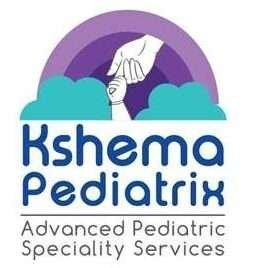
Don’t worry… I will attempt to clarify some of the common doubts that arise in the minds of parents when a surgical intervention is suggested for their child.
This is a compilation of Frequently Asked Questions about surgery on children.
This is intended to clarify many doubts and queries addressing the issues in general. However, there may be differences in a given situation. Please do not hesitate to ask your surgeon if you have any specific queries.
This is a compilation of Frequently Asked Questions about surgery on children.
This is intended to clarify many doubts and queries addressing the issues in general. However, there may be differences in a given situation. Please do not hesitate to ask your surgeon if you have any specific queries.
Is the operation really needed?
A surgical procedure is intended to set right a structural defect in the body. An operation would be advised only if inevitable and if no medical treatment is possible. Your Pediatric Surgeon would have carefully considered the pros and cons before deciding to advise the surgical option. It is advisable to adhere to the suggested time frame.
Is it Safe?
Yes. Surgical procedures and anesthetic techniques have evolved to a great extent in the last decade. It is now possible to safely perform even complicated operations on the tiniest of babies. The modern technology has definitely enhanced the versatility and safety of the operative procedures in children. The concerned doctor will discuss the risk factors on an individual basis.
Isn’t it risky ?
Any operation / anesthesia involves a small amount of risk, more so in small children. However, every effort will be made to ensure that all the personnel involved the surgeon, assistants, anesthetists, nurses, theatre and ward staff, are all well conversant with handling small babies. They will take sufficient precautions to minimize the risk to the maximum extent.
How much will my child suffer?
Most of the routine cases are done on a ’day-care’ basis i.e. the child operated in the morning will be discharged the same evening. The overwhelming majority of the children will be back to their usual self by then. To ensure a pain free post-operative period, we usually administer additional regional analgesic at the end of the operation and also oral medications.
What will be the duration of the hospitalization?
We believe that the right place for the child is home and not a hospital, however well it is furnished. Also, the entire family will be in turmoil whenever a child is in the hospital. Hence, the hospitalization would be as short as possible. The exact duration of hospital stay will however vary on several factors like the disease, the child’s mental make-up, the parents’ preference, hospital protocol and insurance requirements etc.
Is it going to be General or Local Anesthesia?
Of course, a lot of procedures can be carried out under local anesthesia in adults. Yet, in small children, it may not be feasible as they are frightened in
the operation theatre. It certainly would be inhuman to forcibly hold your child down to carry out the delicate surgical procedure. We prefer a formal general anesthesia for children for an effective surgical procedure. However, Local / regional anesthetics are given in most cases to reduce the requirement of general anesthesia and for adequate post-operative pain relief.
What are the pre-operative preparations?
Starvation: It is essential to have a fully empty stomach at the time of anesthetic induction to prevent vomiting on operation table and its potentially life-threatening complications. Hence, you would be advised to starve your child for a duration suitable to your child’s age (a minimum of 4 hours prior to the surgery). Please ensure that your child does not have even a drop of water during this period.
Consent: It is a mandatory medico-legal requirement for the parents to sign an informed consent form authorizing the concerned doctors and the Hospital / Nursing Home to carry out the proposed surgical procedure. (A sample consent form will be given to you, if you so desire). You will be explained in a simple language the nature of the surgery, the available options, risks involved and any special implications involved etc. Kindly clarify all your queries before you sign the consent form.
Pre-medications: In children, we generally tend to avoid pre-operative injections so as to reduce the child’s apprehension and hostility. However, in certain circumstances, the anesthetist may prefer to administer some pre-operative medications to increase the safety of the anesthesia.
What about the post-operative care?
Feeding: Generally, feeding is advised after your child recovers completely from the effect of the sedatives and becomes FULLY conscious, alert and demanding feeds. Premature initiation of feeds may precipitate vomiting in a drowsy child and complicate the matters. Once the feed is allowed, start with small sips of water / clear liquids and then gradually increase to other liquids, semi-solids and then solids. The feeding may be delayed if any intra-abdominal procedure is performed.
Physical Activity: You need to understand that most children do not know that they ’underwent a surgery’ in your conventional meaning. Hence, they do not follow your ’rules’ of ’bed rest’, ’careful movements’, ’do not move your hand’ etc. They find these instructions rather weird, stifling and intimidating. Encourage your child to be as normal as possible. Handle your child as you usually do carry on your lap, arms & shoulder, cuddle, caress and comfort. THEY NEED IT.
It is surprisingly easier to handle children – they do not stretch themselves and do anything that is painful and if it is not painful, they are going to doing it regardless.
Just, let go and listen to them for a few days. They can choose the activities, food and dresses that they are comfortable.
By following these simple guidelines, you will be helping your child to return to normalcy very fast.
Stitches: Nearly always, special absorbable sutures are used and it is not necessary to remove the stitches. Only in rare instances are removable sutures are used.
Other Medications: Surgery is only a short-term problem and is handled accordingly. Hence, your child need to continue all the other medications / vaccination etc. as advised by the Pediatrician. Hence, bring them along with you during hospitalization.
Schooling: Your child can attend school as early as is practically feasible. It may be a relief for the parents also to send the child to the school than to handle his/her tantrums and mischief at home!
A Last word:
Please do understand that we all work under the realm of nature and human limitations. Modern Medicine, despite all the advances is still an art and not a perfect science. We make our best human efforts to ensure that everything goes well. However, we all need the Divine grace, which is very vital in every aspect of life. So let us all spare a moment to pray for His blessings and guidance in our well-intended endeavor.
Dr. Ramesh Santhananakrishnan
Director and Chief Pediatric Surgeon,
Kshema Pediatrix,
A Centre for Advanced Speciality Pediatric Services,
110, Bull Temple Road, Bangalore 560 019
do***********@*************ix.clinic


